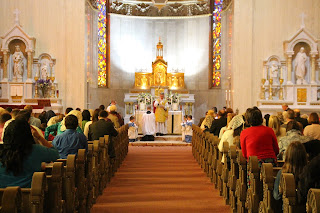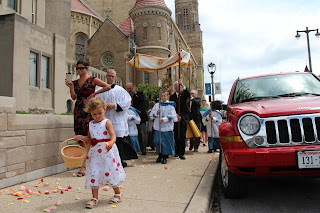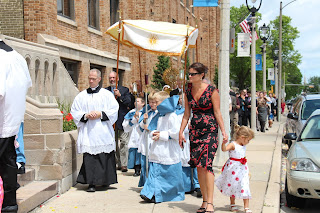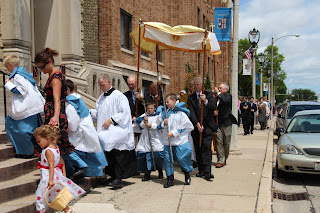Blessed Paul VI
"I wish to propose a theory about Blessed Paul VI for which, currently, I can adduce some evidence; I wonder if there is more.
HE WAS UN POCO AMLETICO
(1) He relied upon dishonest people for advice. (a) From the Memoires of Louis Bouyer: "At different stages, be it with regard to the dumping overboard (sabordage) of the Liturgy of the Departed, or again in that unbelievable enterprise of expurgating the psalms in view of their use in the Office, Bugnini came up against an opposition, not just massive, but one could say pretty well unanimous. In some such cases, he did not hesitate to tell us 'But the Pope wants it!'. After that, to be sure, there was no longer a question of discussing it." Bouyer recounts how he once met Bugnini in circumstances in which the latter, mistakenly, believed that he, Bouyer, had just been with Pope Paul ... whom Bugnini was on his way to see. "On seeing me, he not only turned completely white but, visibly, was knocked for six (non seulement il blemit, mais, visiblement, il fut atterre)". "The answer was to be presented to me, but some weeks later, by Paul VI himself. Nattering with me about our famous labours, which he had confirmed, he finally said to me 'But why, then, did you put into this reform ...' (Here, I have to admit that I don't recall any longer which of the details which I have mentioned particularly irritated him.) Naturally, I replied 'But purely and simply because Bugnini guaranteed to us that you were absolutely set on it (avait certifie que vous le vouliez absolument).' His reaction was immediate: 'Is it possible? He said to me personally that you were unanimous in this respect!'". (b) Bishop Tissier's biography recounts that when Archbishop Lefebvre was received in audience by the Pope, Paul VI was hostile from the start. It transpired that he had been informed, probably by Cardinal Villot, that the Archbishop made the priests whom he formed "sign an oath against the Pope". Given such shameless mendacity, it is hardly surprising that the Holy Father's mind was poisoned against Lefebvre.
(2) Blessed Paul VI preferred to compromise with disorder rather than to face it down. It seems clear, from Dom Cassian Folsom's Adoremus series of articles, that the provision of alternative Eucharistic Prayers was a pathetic but well-meant attempt to rein in the chaos which existed particularly in the Low Countries, where home-made Eucharistic Prayers were proliferating in (literally) hundreds. He was assured that the Hierarchy, given this concession, were prepared to restore order. (Big of them ... Traditionalists would also do well to remember that it was the provision of these alternatives which saved the Canon itself from being mangled ... better, surely, to be unused for a few decades than permanently debased?)
As well as the human and historical tragedy, there is an ecclesiological point here. If you blend together in one saucepan an exaggerated notion of papal authority (as analysed by Joseph Ratzinger) with the activities (described in detail by Louis Bouyer) of unscrupulous and dishonest and ruthlessly determined manipulative individuals who have the pope's ear, you are gravely at risk of having a disaster the results of which it may well take generations to mitigate. Quod factum est."
When I read this the article that Tancred posted the other day about the FFI and the banning of Fr. Manelli from saying the ancient rite came to mind. The joke is that conservatives and liberals alike love to play the word game that trads weaponize the ancient rite and hurt the church in the process. Well what do you call banning a priest from saying "a form" of the Latin rite that is just as legitimate and to be accessible as the other. At the very heart of this all is the idea that one can only say the ancient rite if there is a need by a group of people for it. As if Mass was dependent on how many people are assisting therein. Do you know why the priest in the OF does not genuflect before the elevation of the host immediatly after consecration? Its because the focus is on the people first seeing the Sacred Host and then he can genuflect because the people now affirm that he is there after they see Him... which is insane. They are weaponizing the OF against the EF, and they are doing it because they know that their time is short on the matter. For years they played word games that the OF was just the translation of the EF and the ignorant bought it hook line and sinker. And what of these priests that are banned from saying the EF, it is happening right here in Milwaukee where I know at least one priest who is not allowed to say it in fear of punishment, and that is with a "conservative" bishop. They are driving good priests into trouble and paranoia just as they did with Lefebvre, and frankly I dont think they care. Pray for these Bishops and priests!
+JMJ+






















































































































